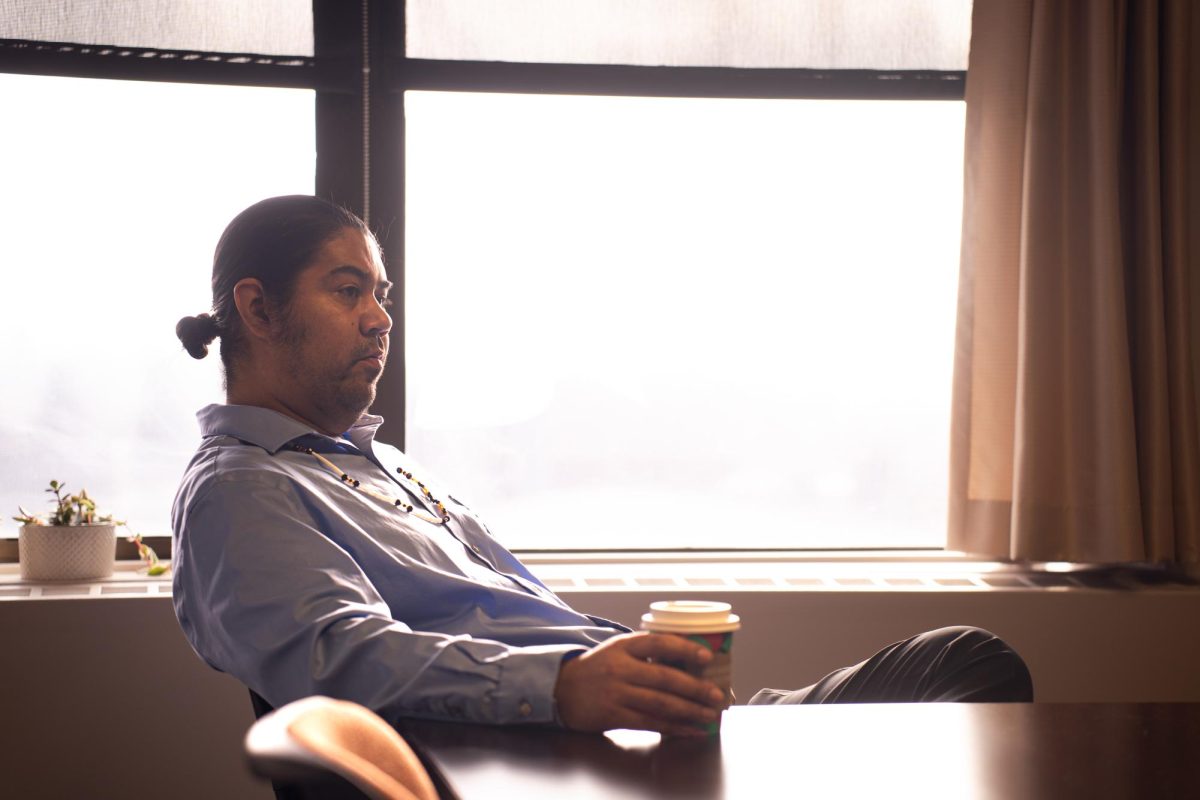Whether on or off the campus of Oregon State University, students and community members of Corvallis can still find the resources they need, regardless of their financial situation.
The Vina Moses Center, located in North Corvallis, has been operating for 105 years and named after philanthropist Vina Moses, according to Executive Director Ilene McClelland,.
The VMC has been officially considered a nonprofit organization since the 1970s. However, Vina Moses participated in community outreach since moving to Corvallis in 1905.
According to the VMC, some profound achievements include Moses organizing clothing for servicemen during the First World War, using excess clothing that was donated by the community.
Moses even operated a welfare center out of her house for 54 years, with the help of volunteers, assisting community members such as house fire victims and people who need food or housing assistance.
“People come in here and shop once a month,” McClellan said. “Everything is free.”
Community members don’t have to provide pay stubs or proof of income to use the resources at the VMC, unless they’re looking for financial assistance. The VMC “takes people at their word.” However, some resources will be met with a limit within a timeframe.
Furthermore, the VMC hosts seasonal events in addition to their free thrift store and 24-hour food pantry: back to school programs, their giving tree program, giving gift cards around the holidays and more.
Each year, the VMC serves close to 7,000 community members, including 30 families, some of whom frequent the center.
The VMC buys a lot of the resources they need to assist the community, but also receives donations from the community and nearby businesses. Trader Joe’s and The Salvation Army are just two organizations who donate as well.
Jade True, an employee at the VMC, moved from Seattle, WA and has been working at the center for a year and a half.
“It’s really an incredible feeling and experience getting to do this,” True said. “I always knew I wanted to do something where I was helping people.”
One of True’s most memorable experiences was when the VMC bought a Greyhound bus ticket for a man to see his terminally ill daughter in California. The man was so thankful, he sent a thank you letter to the center which they read during one of their seasonal programs.
The Basic Needs Center is a resource on campus where students can go to receive assistance beyond just food.
While the BNC does offer food through their fresh food events and food pantry, which serve over 500 students and community members, they also provide supplemental nutrition assistance program help–or SNAP– or students who use Electronic Benefits Transfer cards (EBT).
Furthermore, the BNC offers textbook lending, housing assistance, hygiene services and more.
Christian Mondero, fourth-year sociology major, has been working at the BNC since last summer, and what inspired him to work there was his want to help people.
“I didn’t have enough resources throughout my college years,” Mondero said. “Once I started utilizing the resources, I felt really connected.”
The BNC receives donations and funding, collaborates with different organizations on campus, and even partners with outside organizations such as the Oregon Food Bank.
Alma Gonzalez, fourth-year sociology major, found out about the BNC through an advisor, and has been able to save money using the different resources the center has to offer. Gonzalez has been working at the BNC for eight months.
However, students are always welcome to come to the BNC to study or hang out, even if they aren’t using the resources. They even host events, like one they had in collaboration with the Counseling and Psychological Services, that involved painting and music.
Mondero and Gonzalez both want to continue helping people as a career, with Mondero wanting to become a litigation lawyer.
The BNC was proposed by two students in 2008, as a response to the financial crisis that plagued the country. They were initially known as the Human Services Resource Center, but the name was changed to the Basic Needs Center in 2022.













































































































